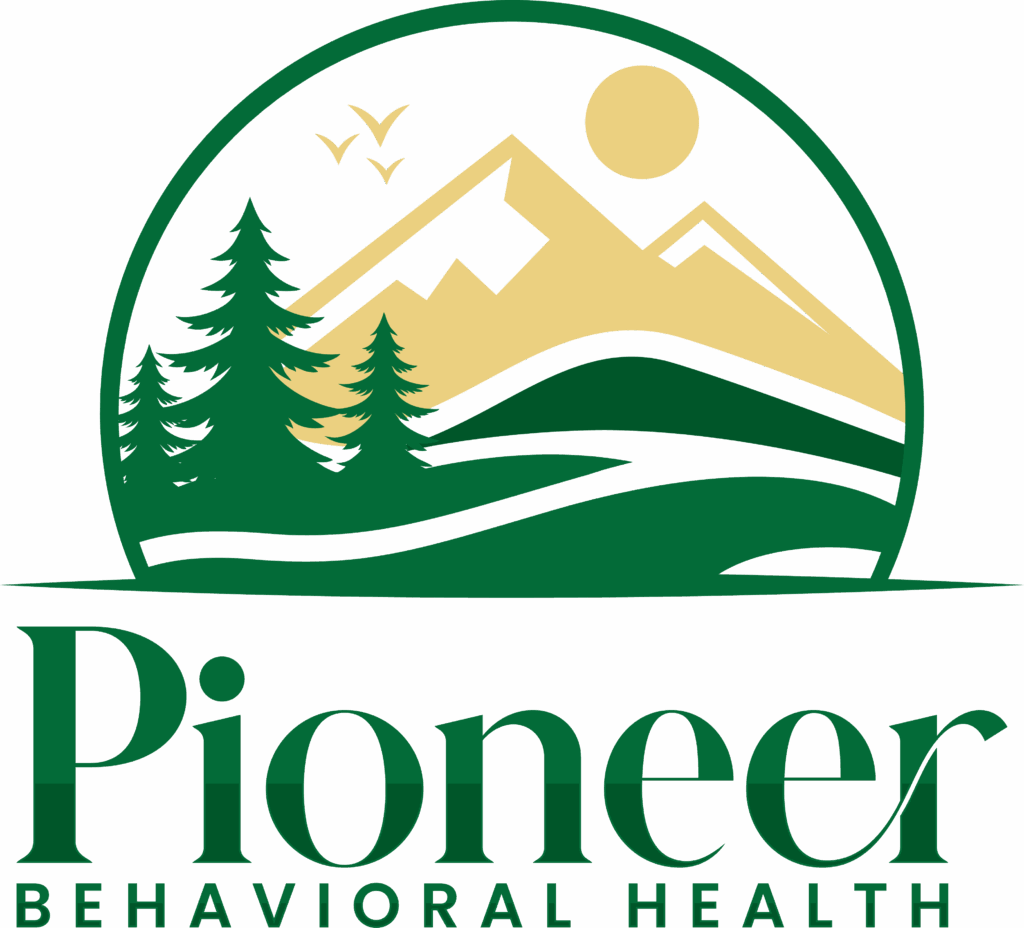Alcohol is a common part of social gatherings, celebrations, and relaxation for many people. However, what may start as the occasional drink can sometimes spiral into patterns that impact both physical and mental well-being. While drinking in moderation isn’t necessarily harmful, excessive or regular alcohol consumption can negatively affect your emotional health, relationships, and overall quality of life. At Pioneer Behavioral Health, we believe that understanding the links between alcohol and mental health is the first step toward making informed decisions and seeking help if needed.
The Mental Health-Alcohol Connection
Alcohol can produce a temporary feeling of relaxation or euphoria due to its effect on the brain’s chemistry. In small amounts, it may even seem to reduce stress. But as time goes on and drinking habits intensify, alcohol can contribute to long-term changes in mood, thinking, and behavior. Here are some key ways it can influence mental health:
- Mood Changes:
Alcohol is a depressant. Although it may initially appear to lift your spirits, frequent or heavy use can exacerbate mood disorders like depression and anxiety. Over time, you may find that the more you drink, the more you struggle with low mood or nervousness when you’re not drinking. - Anxiety and Panic Attacks:
Even though alcohol can initially seem calming, heavy or prolonged use can increase anxiety levels. The very substance you’re using to “take the edge off” might be worsening the problem, leading to a cycle of drinking to relieve anxiety, only to experience even greater distress later. - Irritability and Anger Outbursts:
Changes in brain chemistry can lead to irritability, mood swings, or even anger. Over time, these emotional shifts can cause strain in relationships, work environments, and daily life. - Sleep Disturbances:
Quality sleep is crucial for mental health. While alcohol might make you drowsy at first, it typically disrupts the restorative phases of sleep, leaving you feeling tired, irritable, and less equipped to handle stress. Chronic poor sleep can worsen mental health struggles and create a vicious cycle that’s difficult to break. - Cognitive Decline:
Long-term alcohol use can impair concentration, memory, and decision-making abilities. Over time, these changes in cognitive function can contribute to feelings of frustration, low self-esteem, and increased vulnerability to mental health disorders.
Risk Factors and Vulnerabilities
Not everyone who drinks will develop mental health challenges, but some factors can increase vulnerability:
- Genetics: A family history of substance use disorders or mental health conditions can heighten the risk of experiencing the negative mental health effects of alcohol.
- Trauma and Stress: Past traumatic experiences, ongoing stress, or exposure to challenging life circumstances may make someone more likely to rely on alcohol as a coping mechanism.
- Underlying Mental Health Conditions: Conditions like depression, anxiety, bipolar disorder, and PTSD can be exacerbated by alcohol use. In some cases, people start using alcohol to self-medicate, only to find that it intensifies their symptoms.
Breaking the Cycle: Recognizing Problematic Use
It’s important to recognize the signs that alcohol may be undermining your mental health. These can include:
- Drinking more or more often than you intended.
- Struggling with mood swings, irritability, or persistent sadness after drinking.
- Using alcohol to cope with stress, anxiety, or other uncomfortable emotions.
- Feeling restless, on edge, or anxious when not drinking.
- Experiencing memory lapses or increased difficulty in focusing.
- Neglecting responsibilities at work, home, or in social settings due to alcohol use.
If any of these resonate with you, it may be time to reflect on your relationship with alcohol and consider seeking professional help.
Seeking Help and Treatment Options
Recovery from problematic alcohol use is possible, and you don’t have to face it alone. At Pioneer Behavioral Health, we offer a comprehensive approach, including different types of therapies, to understanding and managing the mental health effects of alcohol use:
- Individual Therapy: Work one-on-one with a licensed therapist who can help you identify underlying triggers, develop healthier coping strategies, and set achievable goals for reducing or eliminating alcohol use.
- Group Therapy: Connect with peers who share similar challenges. Group therapy provides a supportive environment to exchange insights, celebrate progress, and build a community that understands what you’re going through.
- Outpatient Treatment Programs: Our flexible outpatient programs allow you to maintain your daily responsibilities while receiving structured support. You’ll benefit from counseling, education, and relapse prevention strategies tailored to your needs.
- Holistic Wellness Practices: We encourage a well-rounded approach to recovery. Beyond therapy, activities like mindfulness, exercise, and proper nutrition can enhance mental resilience and improve your overall quality of life.
Taking the First Step
If you suspect that alcohol is affecting your mental health, remember that help is available. Seeking professional support is a sign of strength—not weakness. By understanding the connection between alcohol and mental well-being, you can take control of your life, make informed choices, and work toward a healthier, more balanced future.
At Pioneer Behavioral Health, we’re here to guide you every step of the way. Contact us today to learn more about our treatment programs and discover how we can help you break free from the grip alcohol may have on your mental health. Let’s chart a path to a brighter, healthier tomorrow together.

